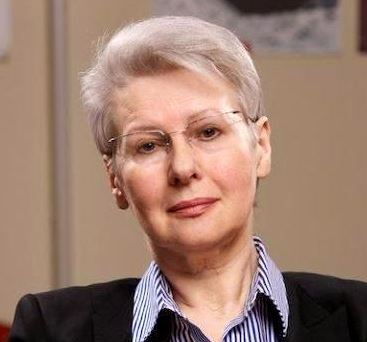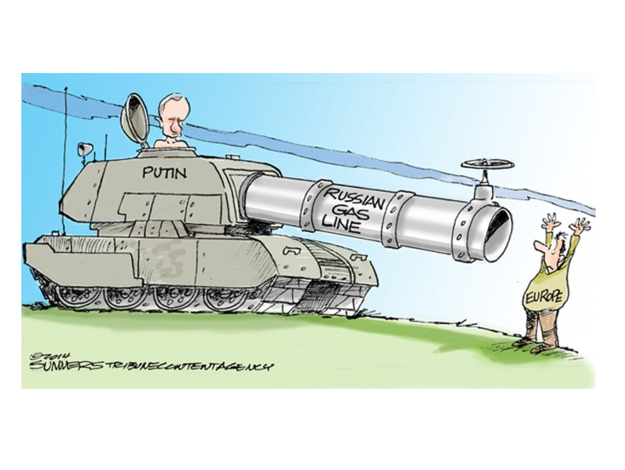The collective West has been unable to force the Kremlin to stop undermining the Ukrainian state. The leaders of the US and the European Union failed to provide Ukraine with defensive weapons and are just creaking open the wallet of financial assistance.
Ukrainians have every reason to ask to what degree the liberal democracies are ready to support the movement of the country toward Europe. On the other hand, if it were not for the stance of the West, Kharkiv and Odesa might have found themselves in the occupied territories. Apparently, we will be able to make a final conclusion only in the future, since right now the story is just unfolding.
The West was able neither to foresee nor to respond in a timely fashion to the Kremlin’s turn toward a “fortress mentality” and toward military patriotism. And the reason lies not only in the premature conclusion of Western politicians regarding the end of the USSR, but in the crisis of the current model of liberal democracy. Add to this the paralysis of the European Union and the departure of the US from Europe. In this context, the shock and confusion of Western leaders - who found themselves facing the threat of the destruction of the world order to which they had become accustomed - is understandable.
European leaders, feeling helpless, are inclined to heed the Kremlin’s proposals for a way out of the war.
The paradox is that it is namely Putin who, in throwing down the global chessboard, has awakened the West. Of course, if Western capitals had come to their senses sooner, then perhaps there might not have been the Russian aggression in Donbas. And consequently, the Russian autocratic system might not have crossed the line, behind which it is already very difficult for it to stop.
Yet the West has begun to recover from the shock, formulating a new doctrine of deterring the Russian Federation based on the reinforcement of Europe’s eastern flank and the pursuit of military de-escalation in Ukraine. The first vector is reflected in the increased defense capabilities of the front-line governments of Eastern Europe and the Baltic states through the restoration of the viability of NATO and the return of a tangible American presence in Europe. The second – in attempts at diplomatic pressure and the imposition of sanctions with the goal of inducing Moscow to halt (but not to return to the status quo ante).
At the same time, Ukraine continues to find itself in a gray zone of uncertainty. In Western capitals which are not indifferent to Kyiv’s fate, there is hope that as the situation in the country stabilizes and real reforms are implemented, Ukraine will be drawn into the European orbit. But it is also true that without support, the country, as before, finds itself in the sphere of risks and threats.
The member nations of NATO have pledged Kyiv their solidarity, but for the time being, they have not decided what this solidarity will consist of. And the Minsk package, in essence, means the legitimization of Russian influence not only on the situation in Donbas, but on the constitutional format of the Ukrainian state.
Of course, the Western doctrine of deterrence has forced the Kremlin to reassess its tactics and to try to find a less painful means of military-patriotic mobilization. Besides, in the course of the conflict something unbelievable has happened: Germany has emerged from its recent role as Moscow’s economic and political partner and has become a European hegemon, offsetting the weakness of the EU. While the repercussions of this breakthrough are difficult to grasp, it will lead to a new balance of power. And this fact alone is a blow to the international agenda of the Kremlin, where they believed that Berlin would swallow all of Moscow’s “initiatives.”
But without a real return of the US to Europe, it is hard to expect that Berlin, to whom the Americans “outsourced" the Ukrainian conflict, will be ready for new breakthrough steps. Ukrainians must take into account the crisis fatigue of political Europe, the absence in Western capitals of an understanding as to what to do next, as well as their fear of engaging in an open war with Moscow.
It seems that European leaders, feeling helpless, are inclined to heed the Kremlin’s proposals for a way out of the war. This means: holding local elections in Donbas and granting "special status" to the separatist enclaves in the framework of the Ukrainian state. Apparently, the West is inclined toward this, in order to freeze or cool down the situation at any cost. But here is the question: does this conflict lend itself to freezing?
What will make the West move toward a more active and massive involvement in the strengthening of Ukrainian statehood? Two factors: new open aggression by Moscow which cannot be disguised as a separatist action, and/or a convincing policy of the Ukrainian authorities to reform the country. It was reforms and their support by the population that allowed the Baltic states to become a part of Europe. It is possible that in the latter case, the journey through the valley of tears might turn out to be shorter and not so painful.
The West has begun to focus. This process is moving forward, but it will take years. And that is why Ukraine will have to rely, first and foremost, on its own determination.

This column was published in the July 17, 2015 issue of Novoye Vremya.





